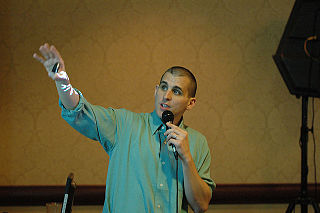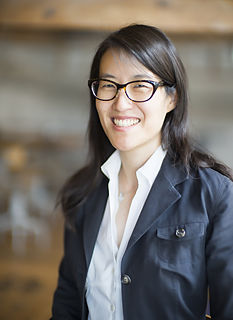A Quote by Albert Ellis
People are terrified of other people or difficult projects because they tell themselves that they could fail or be rejected. Failure can lead to sorrow, regret, frustration and annoyance-all healthy feelings without which people couldn't exist.
Related Quotes
People are terrified of other people or difficult projects because they tell themselves that they could fail or be rejected. Failure can lead to sorrow, regret, frustration and annoyance - all healthy, negative feelings without which people couldn't exist. But then they add, "I absolutely must succeed and must be loved by significant persons, and if I don't, it's terrible and I'm no good." Those are irrational beliefs. As long as people keep them, they'll be terrified of life and will put themselves down when they get rejected.
You can understand Tunisia revolution as a failure to censor the internet. And Libya had that failure too. It's very difficult for governments that are autocratic and don't have broad popular support to be in power when a lot of people have these devices. That was what Arab Spring was about, that people could express this and lead to revolution.
One way to feel good about oneself is to not fail. The easiest way to not fail is to not try in the first place. So, I see lots of people give up before they start. That way they don't have to face uncomfortable failures. They can sort of "remain on the sideline while the game is going on." While this may make people feel good about themselves, it won't get them any power or success. As any successful salesperson will tell you, if you haven't been rejected, you haven't tried enough with enough people.
I don't encourage people to litigate when facing discrimination: It is so hard - painful and difficult. It's draining financially, emotionally, and professionally. But when you see that you could be the person who impacts the conversation in a meaningful way - or that you could inspire a few people to feel better about themselves, to speak up, to inspire others, to create this broader wave of change - I don't regret that at all.
Certainly with a book, people are going to be able to read it and give themselves permission to have that delicious feeling of being terrified because they're in a safe place while they're reading. That's what you can rely on as a writer, that people can let themselves be really frightened because they're really all right.
Because of that she had never had enough energy to be herself, a person who, like everyone else in the world, needed other people in order to be happy. But other people were so difficult. They reacted in unpredictable ways, they surrounded themselves with defensive walls, they behaved just as she did, pretending they didn't care about anything. When someone more open to life appeared, they either rejected them outright or made them suffer, consigning them to being inferior, ingenuous.





































